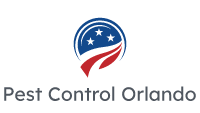Sure! Here’s a 50-word introduction for your blog article on «What is termite season in Florida?» with HTML tags added:
Discovering the Termites’ Haven: Ever wondered when termites are most active in Florida? Our latest article dives into the intriguing world of termite season in the Sunshine State. Uncover the ideal conditions that cause these destructive pests to thrive and learn how to safeguard your property from their relentless attacks.
Termite Season in Florida: Understanding the Threat and Necessity of Pest Control Orlando
Frequent Questions
When is termite season in Orlando, Florida and how long does it typically last?
In Orlando, Florida, termite season typically starts in the spring, around March or April, and lasts until late summer or early fall, around September or October. During this period, termites are most active as they start to reproduce and establish new colonies. It is important to be aware of termite season since it is when the risk of infestation is highest. Homeowners should regularly inspect their properties for signs of termites and consider scheduling professional termite inspections and treatments to protect their homes from termite damage.
What are the signs that indicate termite activity during termite season in Orlando, Florida?
Termite activity in Orlando, Florida can be identified through several signs during termite season. These signs include:
1. **Swarmers:** The presence of swarming termites is a clear indication of an active termite colony nearby. Swarmers are winged termites that emerge in large numbers to mate and establish new colonies.
2. **Mud tubes:** Subterranean termites, which are common in Orlando, build mud tubes as protective tunnels between their nests and food sources. These tubes are typically found on the foundation walls, near plumbing lines, and other areas where they can access wood.
3. **Wood damage:** Termites feed on wood from the inside out, leaving behind hollowed or damaged wood. Look for sagging floors, hollow-sounding wood when tapped, or wood that appears blistered or darkened.
4. **Discarded wings:** After mating, swarmers shed their wings. Finding discarded wings near windowsills, doorways, or light fixtures is a sign of termite activity.
5. **Piles of frass:** Drywood termites create tiny kick-out holes through which they push out their droppings or «frass.» Accumulation of these tiny pellets near furniture, baseboards, or window sills may indicate an infestation.
If you notice any of these signs during termite season, it is important to contact a professional pest control service in Orlando promptly for a thorough inspection and effective treatment.
How can homeowners in Orlando, Florida protect their properties from termite infestations during termite season?
Termite infestations are a common concern for homeowners in Orlando, Florida, especially during termite season. Here are some ways homeowners can protect their properties from termite damage:
1. Regular inspections: Schedule regular termite inspections by a professional pest control company to identify any signs of termite activity early on. This can help prevent extensive damage to your property.
2. Reduce moisture: Termites are attracted to moisture, so it’s important to address any water issues in and around your property. Fix any leaks, ensure proper drainage, and keep gutters clean to avoid excess moisture buildup.
3. Eliminate wood-to-soil contact: Termites thrive on wood and soil contact. Keep firewood, lumber, and other wooden materials elevated and away from the foundation of your home. Additionally, make sure the soil around your property’s perimeter is properly graded and not in direct contact with wooden structures.
4. Install termite barriers: Consider installing physical or chemical barriers around your property’s foundation to deter termite intrusion. Physical barriers, like stainless steel mesh, create a barrier that termites cannot breach. Chemical barriers, such as liquid termiticides, can be applied in the soil to eliminate termites upon contact.
5. Maintain landscaping: Regularly trim bushes, trees, and shrubs to prevent them from touching your home’s exterior, as they can provide a bridge for termites to access your property. Ensure mulch and vegetation are kept well away from the foundation.
6. Seal entry points: Inspect your property for any cracks, gaps, or openings that termites could use as entry points. Seal these areas with caulk or another appropriate sealant to deny termites access to your home.
7. Monitor wooden structures: Regularly check wooden structures in your property, such as decks, fences, and sheds, for signs of termite damage. Look for mud tubes, discarded wings, or weakened wood and promptly address any issues.
8. Stay informed: Stay knowledgeable about termite control methods and new technologies that can help protect your property. Consult with a professional pest control company for guidance on the most effective termite prevention strategies.
By implementing these preventive measures, homeowners in Orlando can significantly reduce the risk of termite infestations and safeguard their properties from costly damage.
In conclusion, understanding the termite season in Florida is crucial for homeowners in Orlando who are concerned about pest control. Termite swarming occurs during the spring, when mature colonies release winged termites in search of new locations to establish their nests. While termite activity can persist year-round in Florida’s warm climate, the spring season presents a higher risk for infestations. It is imperative for residents to be proactive in preventing and detecting termite activity by scheduling regular inspections with professional pest control services. By staying informed and taking necessary steps, homeowners in Orlando can effectively protect their properties from the destructive nature of termites.
